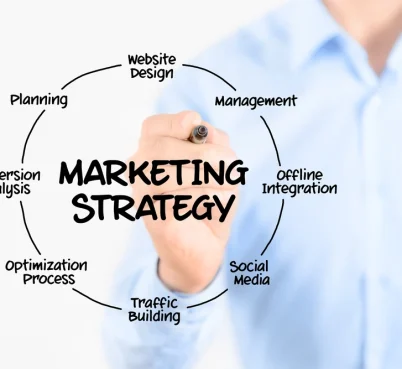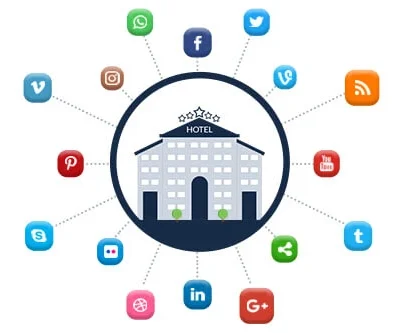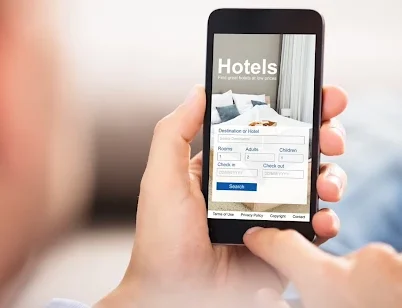If your resort and hotel’s marketing strategy still looks the same as it did a few years ago, you’re leaving money on the table. The hospitality industry is evolving faster than ever, with new trends, technologies, and traveler behaviors shaping the way bookings happen. In 2025, simply listing your hotel on OTAs won’t cut it—you need a multi-channel strategy to attract, engage, and convert travelers before your competitors do.
But where should hotels and resorts focus their efforts? This guide breaks down the 7 best marketing strategies for hotels that will help you increase visibility, drive direct bookings, and maximize revenue in 2025. Scroll down now!
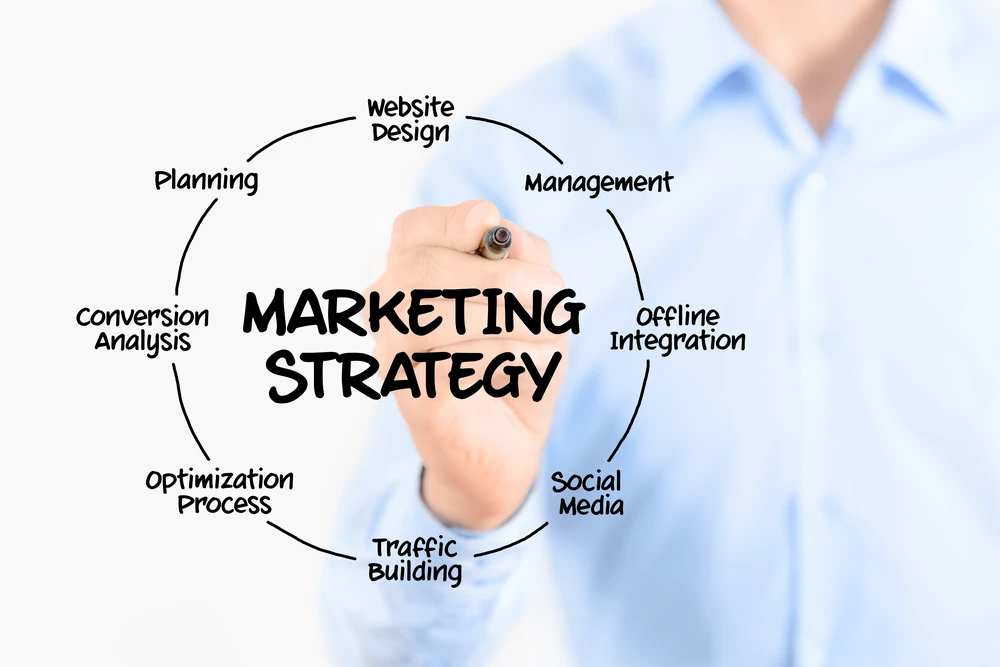
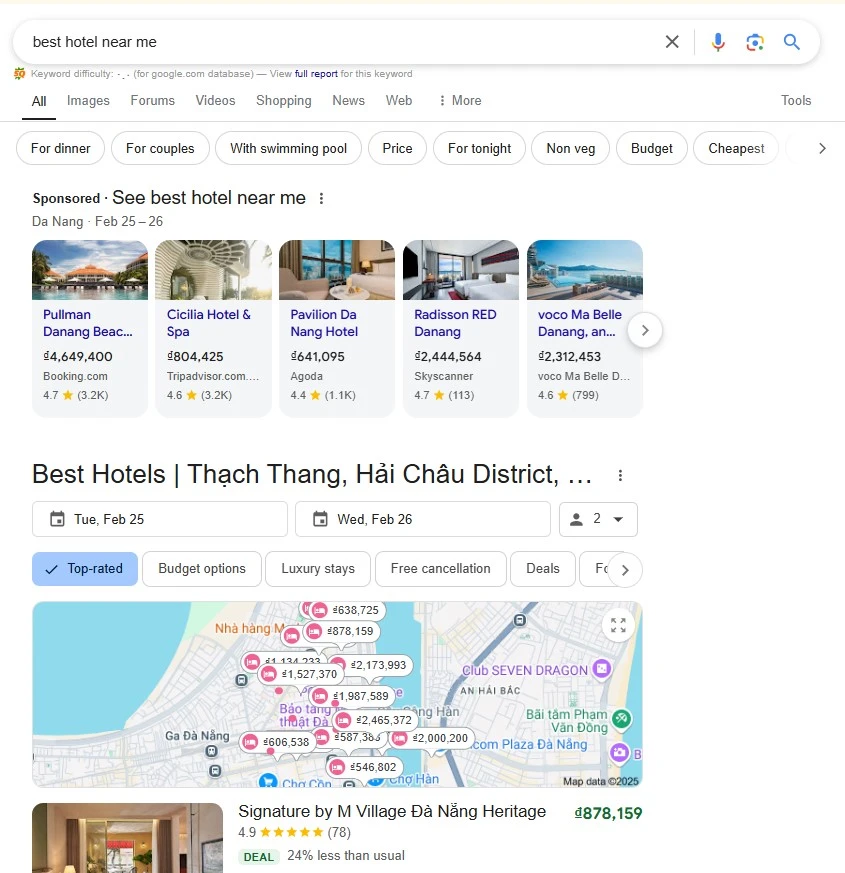
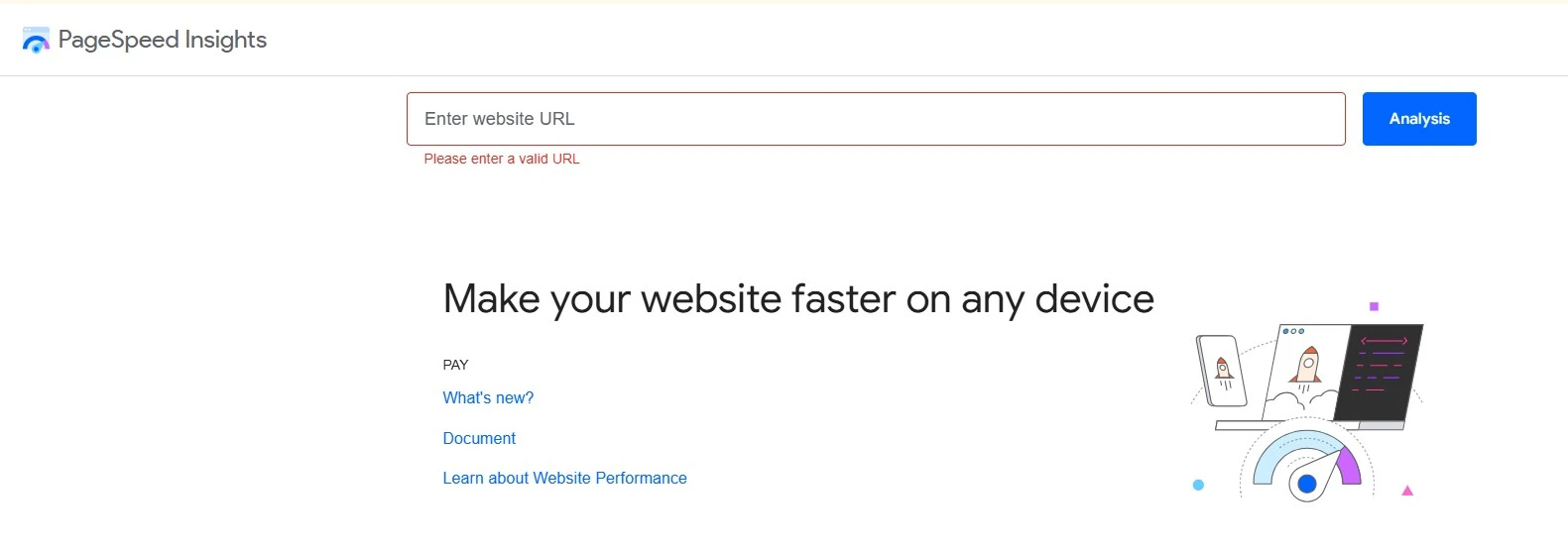 A fast website means happier visitors, better Google rankings, and more completed bookings.
A fast website means happier visitors, better Google rankings, and more completed bookings.
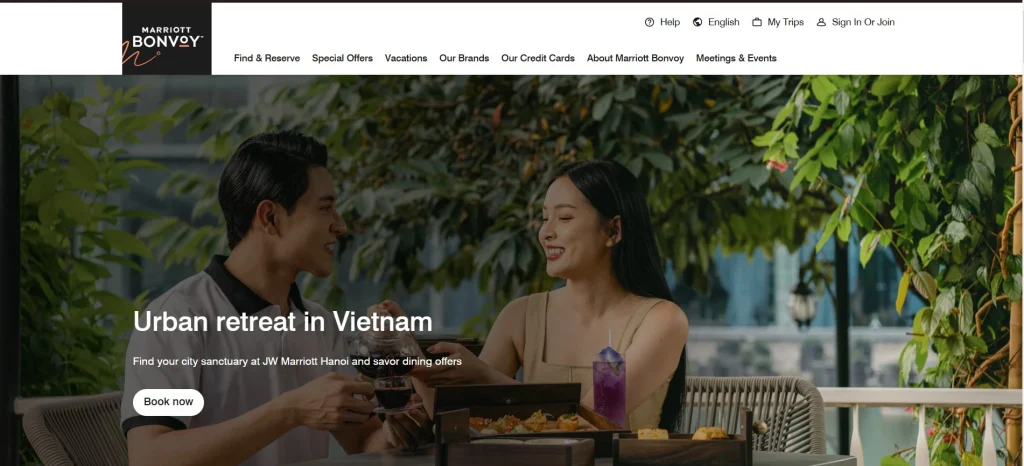 Another game-changer is live chat and chatbots. Many travelers have last-minute questions before booking, and a quick response can mean the difference between securing a reservation or losing it to a competitor. Integrating a chatbot or live support option allows guests to get instant answers and book with confidence.
At the end of the day, the goal is simple: make it ridiculously easy for guests to book directly with you. The fewer barriers, the more revenue stays in your pocket—where it belongs.
Another game-changer is live chat and chatbots. Many travelers have last-minute questions before booking, and a quick response can mean the difference between securing a reservation or losing it to a competitor. Integrating a chatbot or live support option allows guests to get instant answers and book with confidence.
At the end of the day, the goal is simple: make it ridiculously easy for guests to book directly with you. The fewer barriers, the more revenue stays in your pocket—where it belongs.
 Let’s start with the most powerful tool in hotel advertising: paid search.
Let’s start with the most powerful tool in hotel advertising: paid search.
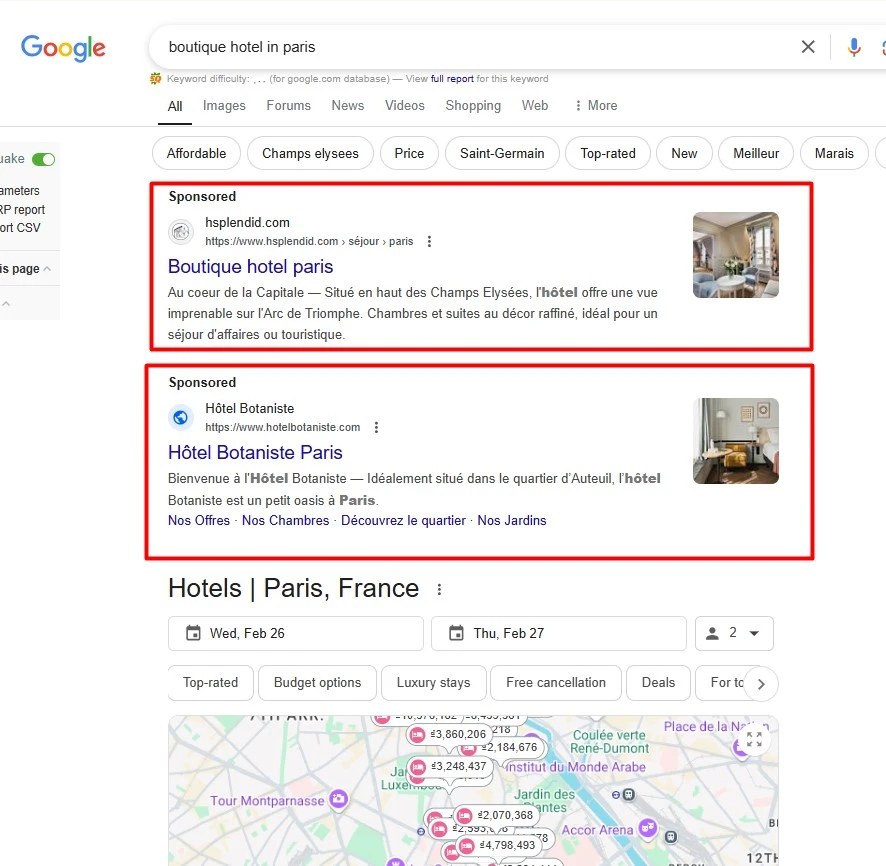 But paid search isn’t just about running ads—it’s about optimizing them for maximum return. The best-performing hotel ads have:
But paid search isn’t just about running ads—it’s about optimizing them for maximum return. The best-performing hotel ads have:

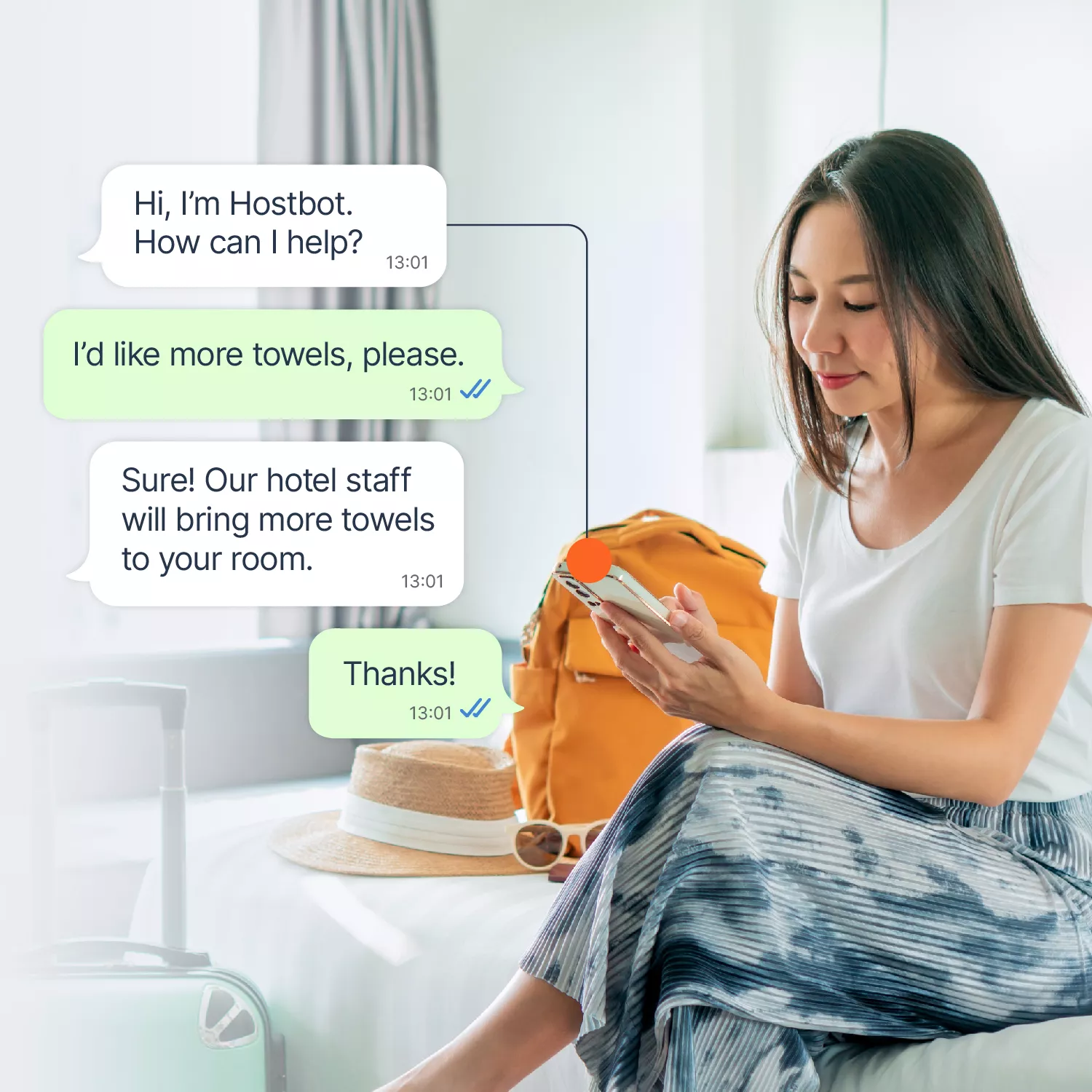 For example, if a potential guest is browsing spa packages on your website but hasn’t booked a room yet, your chatbot can step in with:
"Looking for the perfect relaxation getaway? Book a Deluxe Suite now and get 20% off any spa treatment during your stay!"
Hotels that use AI-driven chatbots see higher engagement, faster response times, and an increase in direct bookings because guests can get answers immediately instead of bouncing to an OTA.
And it doesn’t stop at the website—chatbots integrated with WhatsApp, Facebook Messenger, or even SMS can keep conversations going, offering real-time updates, check-in assistance, and personalized itinerary suggestions.
With chatbots handling routine queries and upsells, your staff can focus on delivering an exceptional in-person experience, while your hotel secures more direct bookings and revenue on autopilot.
For example, if a potential guest is browsing spa packages on your website but hasn’t booked a room yet, your chatbot can step in with:
"Looking for the perfect relaxation getaway? Book a Deluxe Suite now and get 20% off any spa treatment during your stay!"
Hotels that use AI-driven chatbots see higher engagement, faster response times, and an increase in direct bookings because guests can get answers immediately instead of bouncing to an OTA.
And it doesn’t stop at the website—chatbots integrated with WhatsApp, Facebook Messenger, or even SMS can keep conversations going, offering real-time updates, check-in assistance, and personalized itinerary suggestions.
With chatbots handling routine queries and upsells, your staff can focus on delivering an exceptional in-person experience, while your hotel secures more direct bookings and revenue on autopilot.
Hotels that optimize touchpoints along the guest journey create memorable experiences that drive repeat bookings, referrals, and long-term revenue growth. The more connected a guest feels to your hotel, the more likely they are to come back and recommend you to others.
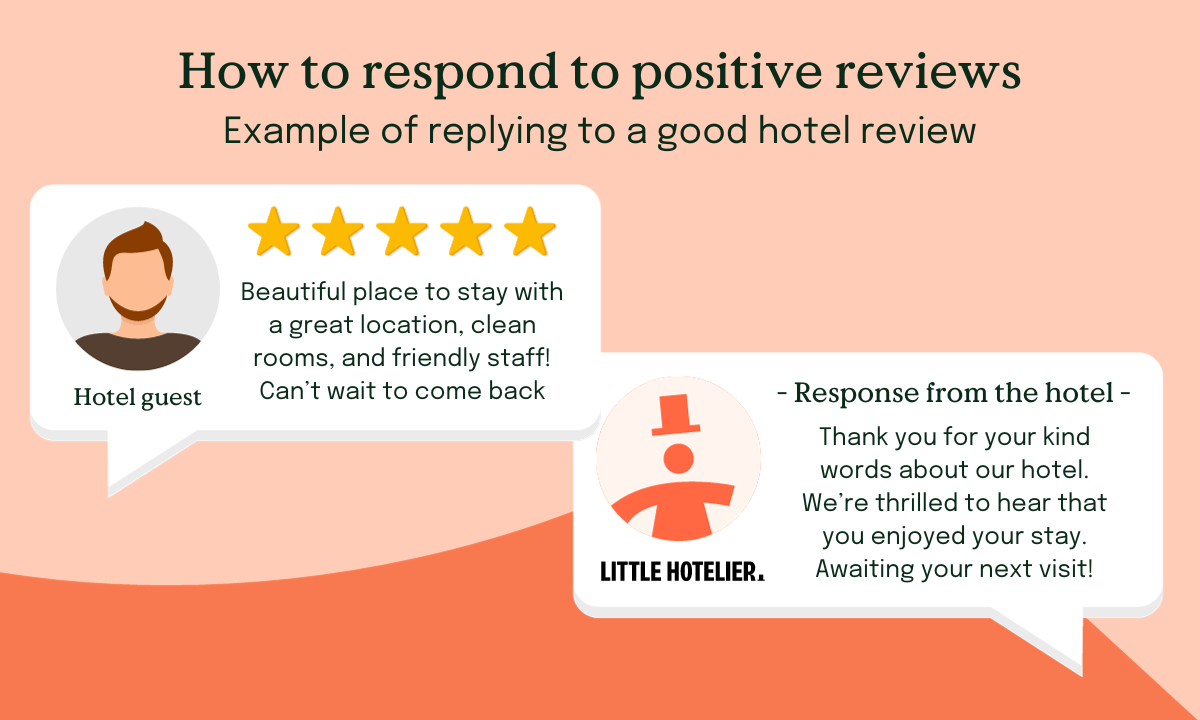 Encourage happy guests to leave reviews by making it easy—send a follow-up email with a direct review link, offer an incentive like a discount on their next stay, or simply ask them at checkout. The more recent positive reviews you have, the more confident future travelers will feel about booking with you.
Encourage happy guests to leave reviews by making it easy—send a follow-up email with a direct review link, offer an incentive like a discount on their next stay, or simply ask them at checkout. The more recent positive reviews you have, the more confident future travelers will feel about booking with you.
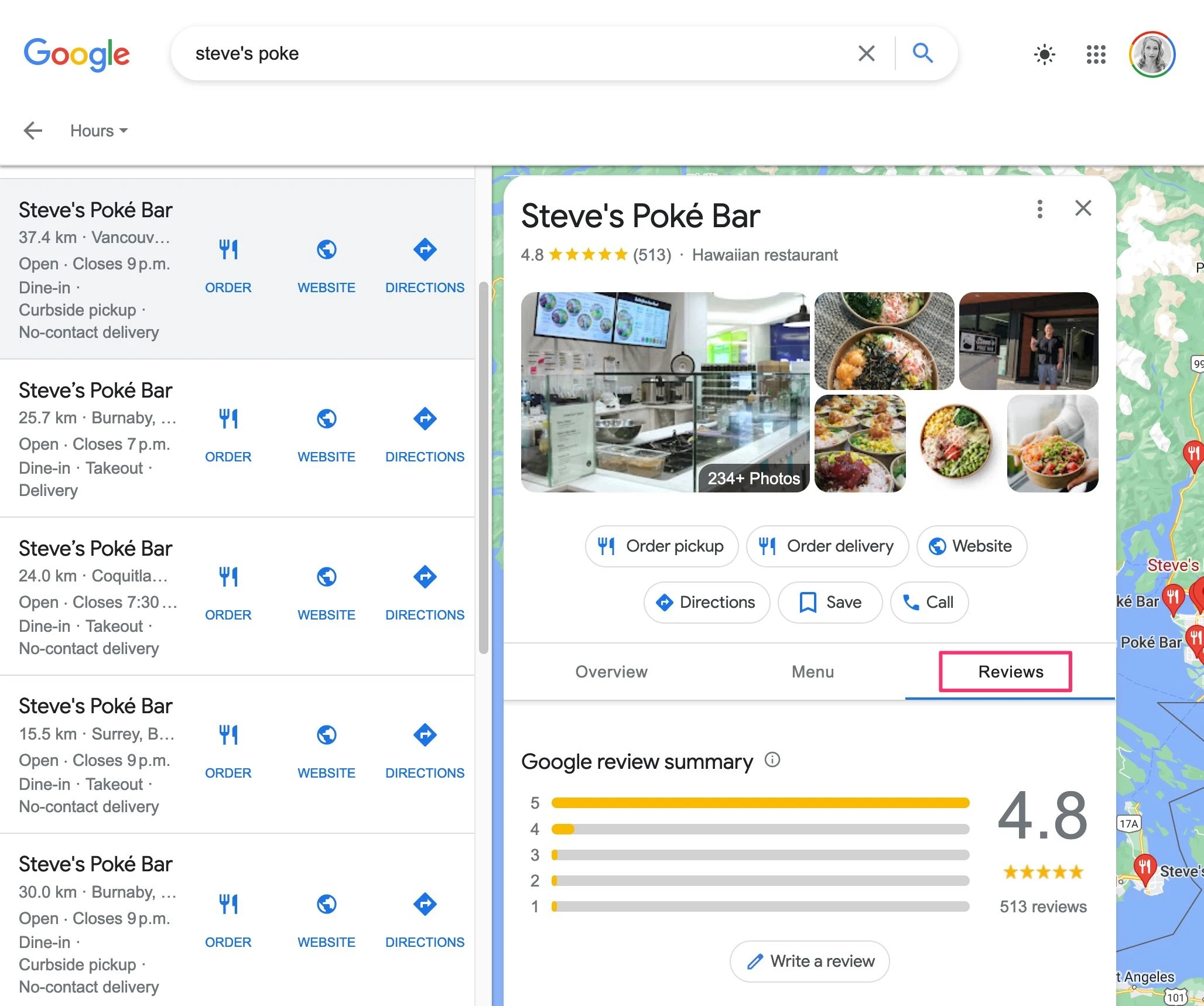 Hotels with an active and optimized Google Business Profile get 70% more clicks than those with incomplete profiles. Let’s make it easier for travelers to trust and book with you directly. Contact us now for more information about google my business management.
Hotels with an active and optimized Google Business Profile get 70% more clicks than those with incomplete profiles. Let’s make it easier for travelers to trust and book with you directly. Contact us now for more information about google my business management.
 For example, a luxury resort could host a wine & food pairing weekend, while a trendy city hotel could organize networking events for digital nomads. If you’re in a location with seasonal peaks, consider hosting seasonal events like summer rooftop parties or winter holiday markets.
Events not only attract new guests but also strengthen local community ties, bringing in repeat visitors and media coverage that extends beyond your typical target audience.
For example, a luxury resort could host a wine & food pairing weekend, while a trendy city hotel could organize networking events for digital nomads. If you’re in a location with seasonal peaks, consider hosting seasonal events like summer rooftop parties or winter holiday markets.
Events not only attract new guests but also strengthen local community ties, bringing in repeat visitors and media coverage that extends beyond your typical target audience.
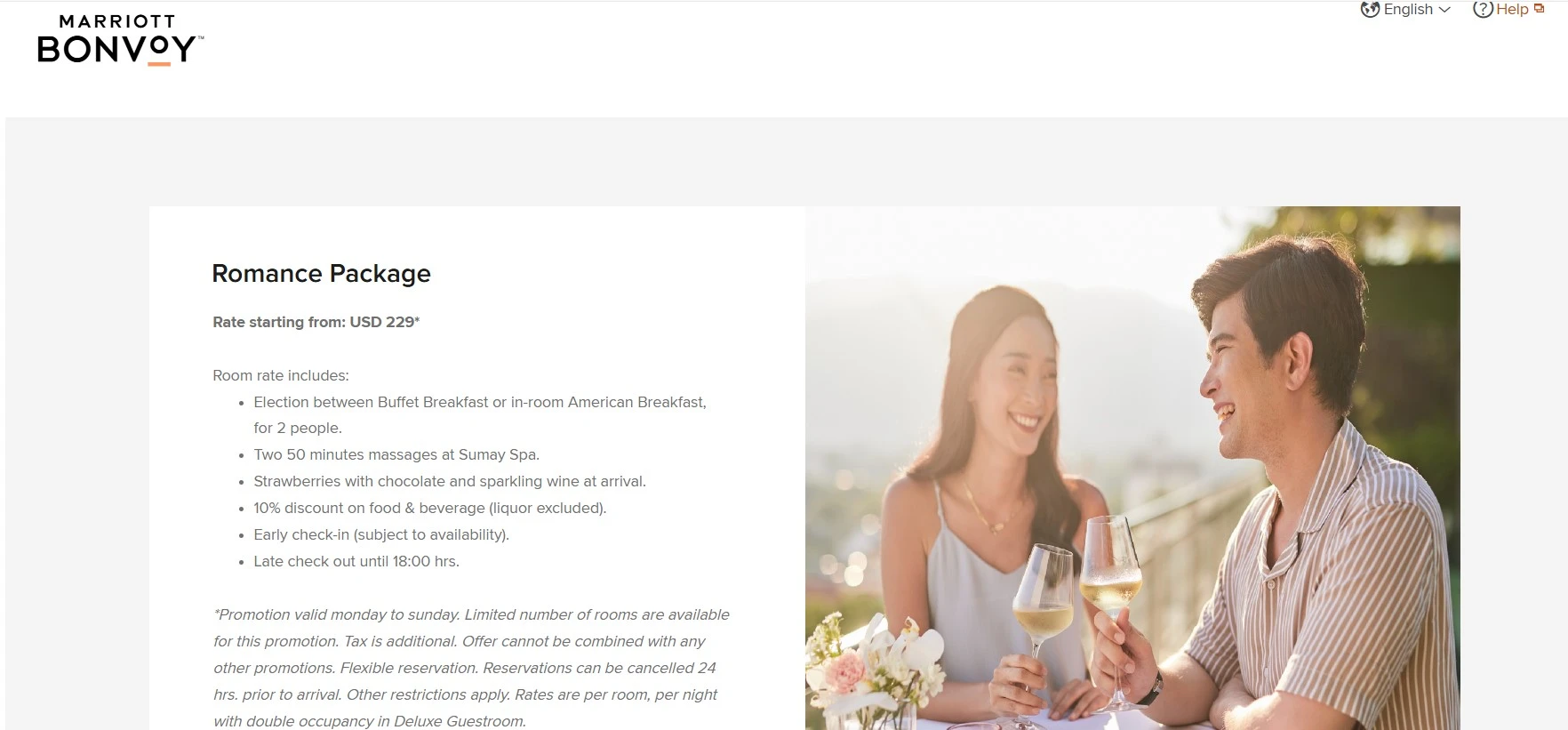 These packages increase perceived value, help upsell premium experiences, and give travelers a compelling reason to choose your hotel over competitors.
These packages increase perceived value, help upsell premium experiences, and give travelers a compelling reason to choose your hotel over competitors.
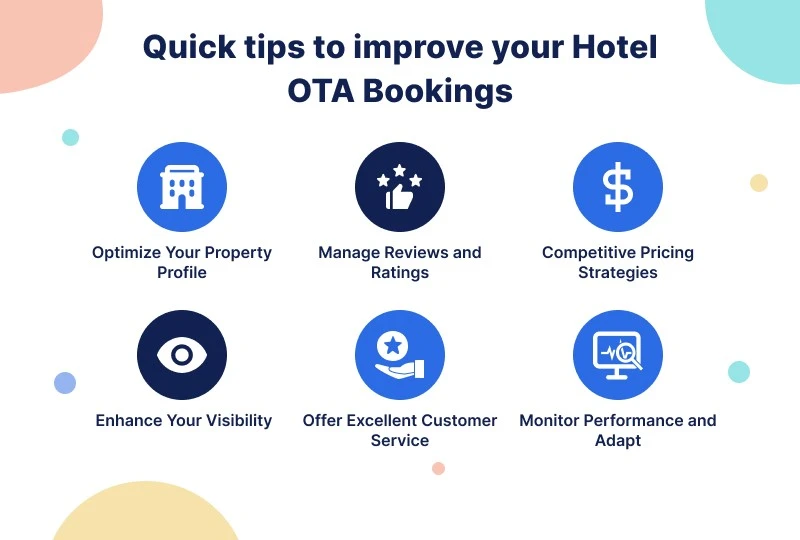 Rather than relying solely on OTAs, use them as a lead generator—impress first-time guests, then encourage them to book directly next time by offering loyalty perks or exclusive benefits.
Rather than relying solely on OTAs, use them as a lead generator—impress first-time guests, then encourage them to book directly next time by offering loyalty perks or exclusive benefits.
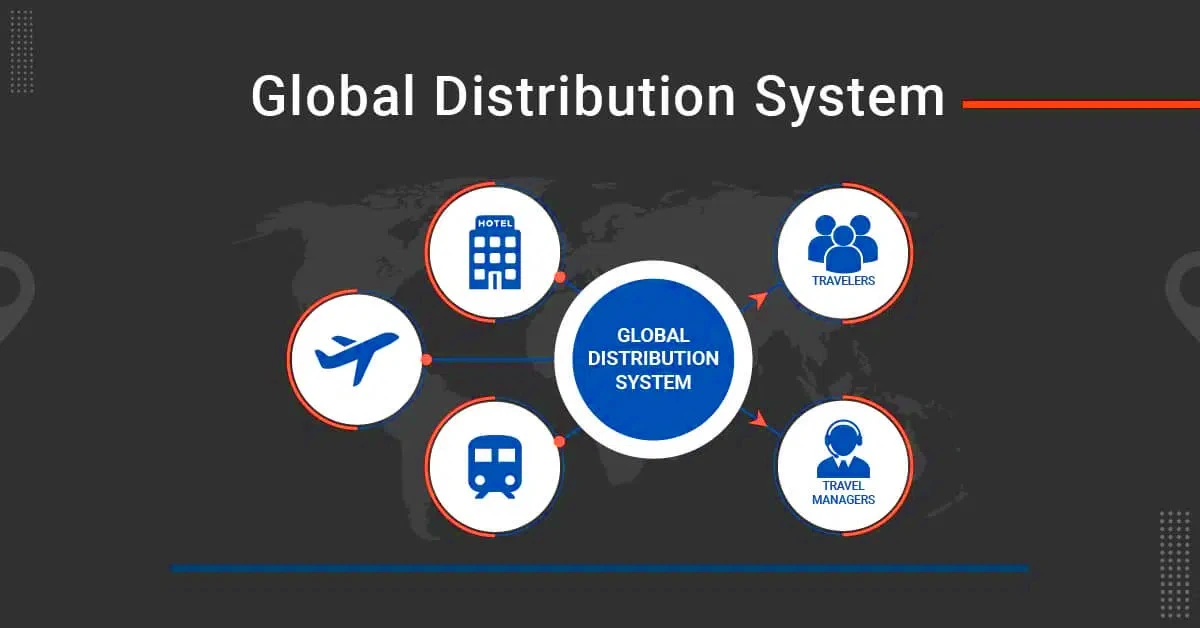 To succeed on GDS, a hotel must ensure that its property management system (PMS) is integrated, allowing real-time updates on availability, pricing, and room descriptions. Travel agents and corporate buyers look for flexible cancellation policies, competitive rates, and business-friendly amenities such as meeting rooms, high-speed WiFi, and early check-in/late checkout options. Hotels that optimize their GDS presence often see a steady stream of bookings from business travelers and conference attendees, providing a reliable revenue stream beyond leisure tourism.
To succeed on GDS, a hotel must ensure that its property management system (PMS) is integrated, allowing real-time updates on availability, pricing, and room descriptions. Travel agents and corporate buyers look for flexible cancellation policies, competitive rates, and business-friendly amenities such as meeting rooms, high-speed WiFi, and early check-in/late checkout options. Hotels that optimize their GDS presence often see a steady stream of bookings from business travelers and conference attendees, providing a reliable revenue stream beyond leisure tourism.
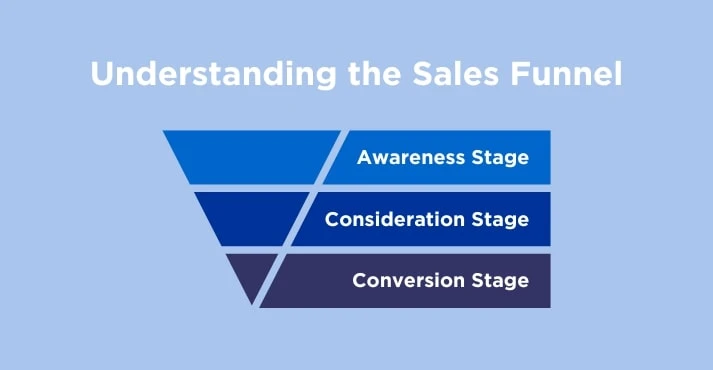 A proactive sales strategy can also help negotiate better terms with OTAs and corporate travel programs. Instead of passively waiting for bookings, a dedicated sales rep can work out direct contracts with companies, bypassing third-party commissions and ensuring more profitable reservations. Hotels that invest in direct sales often see higher occupancy rates, increased brand loyalty, and a stronger presence in the business travel and event market.
A proactive sales strategy can also help negotiate better terms with OTAs and corporate travel programs. Instead of passively waiting for bookings, a dedicated sales rep can work out direct contracts with companies, bypassing third-party commissions and ensuring more profitable reservations. Hotels that invest in direct sales often see higher occupancy rates, increased brand loyalty, and a stronger presence in the business travel and event market.

Turn Your Website into a Booking Magnet
Your hotel’s website isn’t just a digital brochure—it’s your most powerful sales tool. If travelers land on your site and don’t book, something’s broken. In 2025, a high-converting website needs to be fast, mobile-friendly, visually stunning, and optimized for search engines. Otherwise, you’re sending potential guests straight to competitors or OTAs. So how do you make Google (and travelers) fall in love with your site? Let’s start with the SEO basics that actually work one of the best hotel marketing strategies you must know!Get Google to Love Your Hotel (SEO That Works!)
If your hotel or resort isn’t ranking on the first page of Google, you’re invisible to travelers. And since 75% of users never scroll past page one, good SEO is your ticket to free, long-term traffic and more direct bookings. The best part? Unlike paid ads, SEO keeps you visible without ongoing costs. But let’s be real—SEO can feel overwhelming. So, let’s break it down into simple, actionable steps you can start using today.Own Your Local Search Presence
Most travelers search for hotels using phrases like "best hotels in [your city]" or "boutique stays near [landmark]". To show up in these searches, you need to dominate local SEO. Here’s how:- Optimize your Google Business Profile (GBP) – Make sure your listing is complete with high-quality photos, updated contact details, and recent guest reviews.
- Use local keywords naturally – Instead of just saying “luxury hotel,” use "luxury hotel in Bali near Uluwatu Beach." These location-specific keywords help Google match you with the right travelers.
- Get listed in local directories – Sites like TripAdvisor, Yelp, and regional tourism boards can boost your rankings and drive more organic traffic.

Make Your Website Lightning-Fast (or Lose Guests)
Here’s a scary stat: 40% of people leave a website if it takes more than 3 seconds to load . If your site is slow, travelers won’t wait—they’ll book elsewhere.- Test your speed on Google PageSpeed Insights.
- Compress images so they load faster without losing quality.
- Minimize unnecessary plugins and scripts that slow down your site.
- Use a fast, reliable hosting provider to keep load times under 2 seconds.
 A fast website means happier visitors, better Google rankings, and more completed bookings.
A fast website means happier visitors, better Google rankings, and more completed bookings.
Write Like a Traveler, Not a Marketer
Search engines love helpful, engaging tel content, and so do travelers. Instead of stuffing your website with generic phrases like “comfortable accommodations with top-notch service”, create hotel content marketing that answers real questions travelers have. Below are some examples of SEO-friendly blog topics for hotels:- "Best Things to Do in [Your City] (That Only Locals Know)"
- "Where to Stay in [Destination]: A Guide to the Best Areas for Travelers"
- "How to Plan a Romantic Getaway in [Your Hotel’s Location]"
Add a direct booking channel to your website
One of the most powerful hotel marketing strategies is to add a direct booking channel to your website. Having a beautifully designed hotel website is great, but if travelers can’t book directly, you’re sending them straight to OTAs—and losing 15-30% of revenue per booking in commission fees. In 2025, a seamless, user-friendly direct booking system is non-negotiable if you want to increase profitability and customer loyalty. A well-integrated direct booking engine not only saves you money but also gives you more control over the guest experience. When travelers book through OTAs, you don’t own their data—which means you can’t send them personalized offers or nurture them for repeat stays. But with a direct booking system, you can build stronger relationships, offer better incentives, and reduce dependency on third-party platforms. The best booking engines are fast, simple, and mobile-friendly. This means clear pricing, real-time availability, and minimal form fields are key. The fewer steps a guest has to take, the more likely they are to complete the reservation. Hotels that want to maximize their direct bookings should also offer exclusive perks that guests can’t get on OTAs. This could be discounts, free breakfast, room upgrades, or flexible cancellation policies—anything that makes booking directly more attractive. A study by Triptease found that hotels offering direct booking incentives saw a 35% increase in conversion rates. Let’s see the direct booking page at Marriot Hotel Chain: Another game-changer is live chat and chatbots. Many travelers have last-minute questions before booking, and a quick response can mean the difference between securing a reservation or losing it to a competitor. Integrating a chatbot or live support option allows guests to get instant answers and book with confidence.
At the end of the day, the goal is simple: make it ridiculously easy for guests to book directly with you. The fewer barriers, the more revenue stays in your pocket—where it belongs.
Another game-changer is live chat and chatbots. Many travelers have last-minute questions before booking, and a quick response can mean the difference between securing a reservation or losing it to a competitor. Integrating a chatbot or live support option allows guests to get instant answers and book with confidence.
At the end of the day, the goal is simple: make it ridiculously easy for guests to book directly with you. The fewer barriers, the more revenue stays in your pocket—where it belongs.
A Website That Wows = More Bookings
Your hotel’s website is more than just a digital presence—it’s your most powerful sales tool. If it’s slow, cluttered, or difficult to navigate, potential guests won’t stick around. Instead, they’ll book elsewhere, often through OTAs, costing you revenue. A high-performing website doesn’t just look good—it creates a seamless experience that turns visitors into paying guests. Beyond speed, visual storytelling plays a huge role in conversions. Travelers want to see and feel the experience before they book, so high-quality images, immersive videos, and even virtual tours can make a big difference. Showcasing stunning rooms, local attractions, and guest experiences builds trust and excitement, making it easier for visitors to picture themselves staying at your hotel. Simplicity is key when it comes to navigation. If guests have to click too many times just to check availability or pricing, they’re likely to leave. A clean, well-structured design with clear call-to-action buttons makes the booking process intuitive and hassle-free.Your Guests Are Mobile—Your Website Should Be Too!
If your hotel’s website isn’t optimized for mobile, you’re losing bookings—plain and simple. Travelers are no longer sitting at desktops to plan their trips; they’re scrolling, searching, and booking on their phones while commuting, waiting in line, or lounging at a café. If your site isn’t mobile-friendly, it only takes a second for them to bounce to a competitor with a smoother experience. A mobile-optimized site isn’t just about resizing content to fit smaller screens. It’s about creating a seamless experience where everything—from browsing rooms to completing a booking—feels effortless. That means fast loading times, tap-friendly buttons, and a streamlined booking process that doesn’t require excessive scrolling or zooming. Clunky forms and complicated checkouts are major turn-offs for mobile users. If guests have to pinch, zoom, or type in too much information, they’re likely to abandon their booking. A simple, intuitive layout with auto-fill options, easy date selection, and one-click payment methods makes all the difference. Another factor? Speed. Mobile users are impatient. If your site takes too long to load, they’re gone. Compressing images, minimizing redirects, and using a fast, reliable hosting service ensures that your pages load instantly, keeping potential guests engaged. Hotels that prioritize mobile-first design see higher engagement, lower bounce rates, and more direct bookings. In a world where guests expect convenience at their fingertips, your website should be ready to deliver—anytime, anywhere.Smarter Ads, Bigger Wins
Great hotel marketing strategies aren’t just about showing up—it’s about showing up in the right place at the right time. With travelers searching for hotels online every second, paid advertising gives you the power to put your hotel directly in front of high-intent guests before they land on an OTA or a competitor’s site. The right ad strategy doesn’t just increase visibility—it drives more direct bookings, reduces reliance on OTAs, and boosts revenue. Let’s start with the most powerful tool in hotel advertising: paid search.
Let’s start with the most powerful tool in hotel advertising: paid search.
Get Seen with Paid Search
When travelers are actively searching for a hotel or resort in your area, you want your property to be the first thing they see. Paid search ads—like Google Hotel Ads and PPC for hotels (Pay-Per-Click) campaigns—ensure your hotel shows up at the top of search results when potential guests are in booking mode. Unlike organic rankings, which take time to build, paid search puts you on page one instantly. The magic of paid search is targeting. You’re not just throwing ads out there and hoping for the best. Instead, you can bid on specific, high-intent keywords like "boutique hotels in Paris", "luxury resorts in Bali", or "best beachfront hotels in Miami". These are searches made by people already planning their trip, meaning they’re much more likely to convert. But paid search isn’t just about running ads—it’s about optimizing them for maximum return. The best-performing hotel ads have:
But paid search isn’t just about running ads—it’s about optimizing them for maximum return. The best-performing hotel ads have:
- Compelling ad copy that highlights unique selling points (“Book Direct & Save 15%!”).
- High-quality landing pages with clear pricing and easy booking options.
- Smart bidding strategies that ensure you’re reaching the right audience without overspending.
Go Big When Demand Spikes
Timing is everything in hotel marketing. There are moments when demand naturally surges—peak holiday seasons, major events, or long weekends. If you’re not amping up your ad spend during these high-demand periods, you’re missing out on prime booking opportunities. Think about it: when travelers are actively searching for hotels, they’re more likely to book quickly. Running aggressive paid campaigns during these spikes ensures your hotel is the first thing they see, increasing the chances of direct bookings before they land on an OTA. For example, if your hotel is in a ski resort town, your peak booking window might be early fall, right before the winter season starts. If you’re near a major concert venue, ads leading up to big performances can capture last-minute travelers. The key is to analyze historical booking trends and adjust your ad spend accordingly. One of the smartest tactics is geo-targeting—increasing ads in cities where most of your guests come from. If your resort in Thailand sees a spike in visitors from Singapore during public holidays, target those travelers with limited-time offers. When demand is high, guests are willing to book faster—capitalize on that urgency and maximize revenue.Keep a part of your budget for offline campaigns
Digital marketing marketing strategies dominate, but offline campaigns still play a crucial role in driving bookings—especially for hotels targeting luxury travelers, corporate guests, or destination weddings. While online ads capture immediate demand, offline marketing marketing strategies build long-term brand presence and trust. Print ads in travel magazines, airline inflight publications, or lifestyle publications can put your hotel in front of high-value travelers who still engage with traditional media. Billboards in key travel hubs, airports, and business districts work wonders for branding, keeping your hotel top-of-mind when travelers are planning their next trip. Partnerships with travel agencies, event organizers, and tourism boards also help tap into exclusive guest segments who may not actively browse OTAs. And don’t overlook local sponsorships—hotels that sponsor sports events, cultural festivals, or business conferences often see a direct boost in bookings from attendees. The most successful hotel marketers don’t just rely on one channel—they blend digital with offline efforts to create a well-rounded hotel marketing strategies that reaches guests wherever they are.Social Media & Influencer Marketing
Travelers don’t just search for hotels or resorts on Google—they discover them on Instagram, TikTok, and YouTube. In today’s world, social media is about inspiring travelers, building trust, and driving direct bookings. If your hotel isn’t actively engaging on social platforms, you’re losing potential guests to competitors who are. One of the fastest ways to boost visibility? Leveraging influencer marketing for hotels, storytelling, and a strong brand voice to make your hotel or resort unforgettable.Work with influencers
A luxury resort shouldn’t be collaborating with a budget travel blogger, and a boutique hotel in a creative city might benefit more from partnering with lifestyle influencers rather than large travel accounts. Instead of just offering a free stay, hotels should look at influencer collaborations as a long-term partnership. Provide an immersive experience, encourage authentic storytelling, and track engagement metrics to ensure real impact, not just pretty photos. Micro-influencers (with 10K–100K followers) often deliver better engagement and more targeted audiences than mega influencers with millions of followers. You need an example? Let’s see how a boutique hotel in London partnered with multiple influencers who created behind-the-scenes content, hotel walkthroughs, and experience-driven posts. Instead of just showing the room, they highlighted the sunrise yoga sessions, the hidden beach nearby, and the personalized service—which led to a spike in bookings from their audience.
Engage in storytelling
Nobody books a hotel because of a generic caption like “Enjoy your stay with us!” Travelers want to feel something before they book. This is where storytelling makes the difference. A good hotel social media strategy doesn’t just showcase rooms—it brings experiences to life. Instead of posting a picture of your infinity pool, tell a story: "Imagine waking up to the sound of waves, grabbing a fresh smoothie, and diving into this pool with a front-row view of the ocean. This could be your morning at [Hotel Name].” Hotels that embrace storytelling in their captions, videos, and social content create a stronger emotional connection with potential guests. Share guest experiences, behind-the-scenes moments, and local adventures. When people can visualize themselves at your hotel, they’re one step closer to booking.Personalized Guest Experience = More Loyalty
The more tailored your interactions are, the more likely guests are to return, leave glowing reviews, and recommend your hotel to others. One of the easiest ways to provide this level of personalization at scale? Chatbots.Let a Chatbot Do the Talking & Selling
Nobody likes waiting on hold, and guests don’t always have time to sift through FAQs. That’s where AI-powered chatbots step in, offering instant responses, personalized suggestions, and even upselling opportunities—all without human intervention. A well-designed chatbot can answer guest inquiries 24/7, handling everything from room availability and pricing to restaurant reservations and spa bookings. The best part? It doesn’t just provide information—it can actively boost revenue by suggesting upgrades, add-ons, and exclusive offers based on a guest’s browsing behavior. For example, if a potential guest is browsing spa packages on your website but hasn’t booked a room yet, your chatbot can step in with:
"Looking for the perfect relaxation getaway? Book a Deluxe Suite now and get 20% off any spa treatment during your stay!"
Hotels that use AI-driven chatbots see higher engagement, faster response times, and an increase in direct bookings because guests can get answers immediately instead of bouncing to an OTA.
And it doesn’t stop at the website—chatbots integrated with WhatsApp, Facebook Messenger, or even SMS can keep conversations going, offering real-time updates, check-in assistance, and personalized itinerary suggestions.
With chatbots handling routine queries and upsells, your staff can focus on delivering an exceptional in-person experience, while your hotel secures more direct bookings and revenue on autopilot.
For example, if a potential guest is browsing spa packages on your website but hasn’t booked a room yet, your chatbot can step in with:
"Looking for the perfect relaxation getaway? Book a Deluxe Suite now and get 20% off any spa treatment during your stay!"
Hotels that use AI-driven chatbots see higher engagement, faster response times, and an increase in direct bookings because guests can get answers immediately instead of bouncing to an OTA.
And it doesn’t stop at the website—chatbots integrated with WhatsApp, Facebook Messenger, or even SMS can keep conversations going, offering real-time updates, check-in assistance, and personalized itinerary suggestions.
With chatbots handling routine queries and upsells, your staff can focus on delivering an exceptional in-person experience, while your hotel secures more direct bookings and revenue on autopilot.
Personalization marketing
Mass hotel marketing strategies are dead. Today’s travelers expect personalized recommendations, exclusive deals, and tailored experiences that make them feel valued—not just another booking number. Personalized marketing helps hotels connect with guests on a deeper level, increasing loyalty and direct bookings. Instead of sending the same generic promotions to everyone, use guest data to craft targeted campaigns. A repeat visitor? Offer them a returning guest discount. A honeymoon couple? Highlight romantic dinner packages. Someone who browsed your spa page but didn’t book? Send a special spa offer. Hotels that use AI-driven marketing automation can send hyper-targeted emails, text messages, and social ads based on guest behavior, preferences, and past interactions. This not only increases engagement but also boosts conversion rates and long-term loyalty. The best part? Personalized marketing makes guests feel understood, leading to higher satisfaction, better reviews, and more repeat stays.Map the customer journey and have touchpoints along the way
Guests don’t just wake up one day and book a hotel. The decision-making process involves multiple steps, from initial research to post-stay reviews. To increase direct bookings and build loyalty, hotels need to map out this journey and have strategic touchpoints at every stage.| Stage | Touchpoints | Guest Emotions | Winning Strategy |
| Dreaming Stage | Social media, travel blogs, influencer content, destination guides | Excited, inspired, curious | Create visually compelling content, partner with influencers, engage on social platforms |
| Planning Stage | Google search, hotel website , OTA listings, retargeting ads | Interested, comparing options, seeking trust signals | Ensure strong SEO for hotel, run paid ads, offer exclusive perks for direct bookings |
| Booking Stage | Hotel website booking engine, direct booking incentives, email confirmation | Ready to commit, but may have last-minute doubts | Provide an easy booking process, highlight trust signals (reviews, awards), offer flexible policies |
| Pre-Stay Stage | Personalized email with itinerary suggestions, chatbot assistance, upgrade offers | Excited but needs reassurance and guidance | Send engaging pre-arrival emails, suggest personalized experiences, use AI chatbots for support |
| During Stay | Mobile check-in, welcome message, on-site recommendations, loyalty perks | Engaged, looking for a seamless experience | Deliver outstanding service, surprise guests with small perks, encourage social sharing |
| Post-Stay | Follow-up email, review request, future booking discount, loyalty program invitation | Reflecting on experience, considering return or referral | Personalize thank-you emails, request reviews, offer exclusive return discounts, engage on social media |
Reputation Management & Trust Building
Your hotel’s reputation isn’t just about what you say—it’s about what guests say about you. In a world where 93% of travelers read reviews before booking, a strong online reputation can be the difference between a fully booked hotel and empty rooms (TripAdvisor, 2024). Travelers trust real guest experiences over any hotel marketing strategies campaign, so actively managing your reputation isn’t optional—it’s essential. Here’s how to build trust, improve credibility, and ensure your hotel stands out for the right reasons.Keep an eye on reviews and recommendations
Guest reviews can make or break your hotel’s image. A few bad reviews left unanswered? That’s all it takes to deter potential guests. But actively responding to feedback—both positive and negative—shows that your hotel values guest experiences and is committed to improvement. The best approach? Engage with every review. If a guest leaves a glowing 5-star rating, acknowledge them with gratitude. If someone has a complaint, don’t ignore it—respond professionally, address their concerns, and offer a solution. Studies show that hotels responding to guest reviews receive 12% more feedback and their ratings increase by an average of 0.12 stars on a 1–5 scale. Encourage happy guests to leave reviews by making it easy—send a follow-up email with a direct review link, offer an incentive like a discount on their next stay, or simply ask them at checkout. The more recent positive reviews you have, the more confident future travelers will feel about booking with you.
Encourage happy guests to leave reviews by making it easy—send a follow-up email with a direct review link, offer an incentive like a discount on their next stay, or simply ask them at checkout. The more recent positive reviews you have, the more confident future travelers will feel about booking with you.
Don’t neglect your Google Business profile
Your Google Business Profile (GBP) is one of the first things potential guests see when searching for hotels in your area. If your listing isn’t optimized, you’re missing out on free exposure and direct bookings. Make sure your GBP is complete, accurate, and visually appealing by:- Keeping your contact information, website link, and location updated.
- Uploading high-quality images of your rooms, amenities, and surrounding attractions.
- Encouraging guests to leave reviews directly on Google—hotels with more Google reviews rank higher in local searches.
- Using the Q&A feature to answer common guest questions before they even have to ask.
 Hotels with an active and optimized Google Business Profile get 70% more clicks than those with incomplete profiles. Let’s make it easier for travelers to trust and book with you directly. Contact us now for more information about google my business management.
Hotels with an active and optimized Google Business Profile get 70% more clicks than those with incomplete profiles. Let’s make it easier for travelers to trust and book with you directly. Contact us now for more information about google my business management.
Get recommended by real authority
A strong reputation isn’t just about guest reviews—it’s also about who else is talking about your hotel. Being recommended by trusted travel sites, tourism boards, and respected industry names boosts your credibility and attracts high-value guests. How do you get featured?- Pitch to travel bloggers and journalists—offer them a stay in exchange for an honest review or a feature in their city guides.
- Partner with tourism boards and travel agencies to get listed in their recommended accommodations.
- Get featured in top-ranking travel websites like Condé Nast Traveler, Lonely Planet, or TripAdvisor’s "Best Hotels" lists.
- Leverage awards and recognitions—winning a Traveler’s Choice Award or making it onto a "Top 10 Hotels" list can significantly boost bookings.
Partnerships & Community Engagement
Hotels don’t operate in isolation—your success is tied to the experiences travelers have in your destination. By teaming up with local businesses, turning satisfied guests into brand ambassadors, and organizing engaging events, your hotel becomes more than just a place to stay—it becomes a must-visit experience. Strong partnerships and community engagement boost brand awareness, attract new guests, and create lasting connections with both visitors and locals.Turn Happy Guests into Ambassadors
Your most valuable promoters aren’t your marketing team—they’re your satisfied guests. Guests who have a memorable experience are naturally inclined to share their stay on social media, leave positive reviews, and recommend your hotel to friends. The key is encouraging and amplifying this organic word-of-mouth marketing. Make it easy and fun for guests to share their experiences by:- Creating Instagrammable spots around your hotel (stunning pool views, beautifully plated breakfasts, unique room designs).
- Encouraging them to tag your hotel in social media posts—offer a small incentive, like a free drink or late checkout, for guests who share and tag.
- Running guest photo contests with prizes for the best travel snapshots taken at your hotel.
- Setting up a referral program—reward guests who refer new travelers with discounts on future stays.
Organize events
Events aren’t just for conference hotels—they’re a powerful way to bring people together, increase visibility, and create an unforgettable experience. From themed pop-up dinners and live music nights to wellness retreats and cultural festivals, well-planned events turn your hotel into a destination itself. For example, a luxury resort could host a wine & food pairing weekend, while a trendy city hotel could organize networking events for digital nomads. If you’re in a location with seasonal peaks, consider hosting seasonal events like summer rooftop parties or winter holiday markets.
Events not only attract new guests but also strengthen local community ties, bringing in repeat visitors and media coverage that extends beyond your typical target audience.
For example, a luxury resort could host a wine & food pairing weekend, while a trendy city hotel could organize networking events for digital nomads. If you’re in a location with seasonal peaks, consider hosting seasonal events like summer rooftop parties or winter holiday markets.
Events not only attract new guests but also strengthen local community ties, bringing in repeat visitors and media coverage that extends beyond your typical target audience.
Create themed packages
Travelers love a hassle-free experience, and themed packages add convenience while making a stay more memorable. Instead of simply offering a “bed and breakfast” option, think about what unique experiences you can bundle into a stay. Some winning ideas include:- Romance Packages – Champagne on arrival, candlelit dinner, and a couples’ spa treatment.
- Adventure Getaways – Surf lessons, guided hikes, or scuba diving experiences.
- Wellness Retreats – Morning yoga, detox smoothies, and spa discounts.
- Gastronomy Packages – A private chef’s table dinner or a cooking class with local ingredients.
 These packages increase perceived value, help upsell premium experiences, and give travelers a compelling reason to choose your hotel over competitors.
These packages increase perceived value, help upsell premium experiences, and give travelers a compelling reason to choose your hotel over competitors.
Maximize Every Sales Channel
To maximize bookings and revenue, hotels must go beyond just their website and social media presence. Travelers book through multiple channels, from OTAs to corporate travel networks, and if your hotel isn’t visible where potential guests are searching, you’re missing out. A strong multi-channel sales strategy ensures that your hotel is accessible, competitive, and consistently driving revenue from different market segments.Promote yourself with online travel agencies (OTAs)
OTAs like Booking.com, Expedia, and Agoda account for over 70% of global hotel bookings, making them a crucial sales channel. While they come with commission fees, they offer massive exposure and bring in first-time guests who may not have found your hotel otherwise. To make OTAs work for your hotel, optimize your listings by:- Uploading high-quality images that showcase your rooms and amenities.
- Writing compelling, SEO-friendly descriptions that highlight your unique selling points.
- Keeping room availability and pricing updated to avoid overbookings or discrepancies.
- Using OTA promotions strategically—such as last-minute discounts or extended stay offers—to increase visibility.
 Rather than relying solely on OTAs, use them as a lead generator—impress first-time guests, then encourage them to book directly next time by offering loyalty perks or exclusive benefits.
Rather than relying solely on OTAs, use them as a lead generator—impress first-time guests, then encourage them to book directly next time by offering loyalty perks or exclusive benefits.
Make sure to know your OTAs inside-out
Not all OTAs operate the same way, and understanding their strengths and audience demographics can help you sell smarter. Some OTAs focus on budget travelers, while others cater to luxury or niche markets. For example:- Booking.com & Expedia – Best for leisure and business travelers with a broad audience.
- Agoda – Strong in the Asian market, great for attracting international travelers.
- Mr & Mrs Smith – Ideal for boutique and luxury properties seeking a premium audience.
- Hostelworld – Best for budget travelers and backpackers.
Global Distribution Systems (GDS) for B2B clients
While OTAs focus on individual travelers, Global Distribution Systems (GDS) connect hotels with corporate travel managers, travel agencies, and airline booking platforms, making them essential for securing high-value business bookings and long-term partnerships. Many hotels overlook GDS, assuming it's only for large chains, but independent hotels that tap into this network can significantly increase occupancy, particularly during off-peak seasons. Platforms like Amadeus, Sabre, and Travelport act as intermediaries between hotels and thousands of corporate travel planners, making your property available to companies looking to book rooms for business trips, conferences, or group events. Unlike OTAs, which focus on short-term consumer bookings, GDS connections often lead to repeat business from corporate clients who book regularly. To succeed on GDS, a hotel must ensure that its property management system (PMS) is integrated, allowing real-time updates on availability, pricing, and room descriptions. Travel agents and corporate buyers look for flexible cancellation policies, competitive rates, and business-friendly amenities such as meeting rooms, high-speed WiFi, and early check-in/late checkout options. Hotels that optimize their GDS presence often see a steady stream of bookings from business travelers and conference attendees, providing a reliable revenue stream beyond leisure tourism.
To succeed on GDS, a hotel must ensure that its property management system (PMS) is integrated, allowing real-time updates on availability, pricing, and room descriptions. Travel agents and corporate buyers look for flexible cancellation policies, competitive rates, and business-friendly amenities such as meeting rooms, high-speed WiFi, and early check-in/late checkout options. Hotels that optimize their GDS presence often see a steady stream of bookings from business travelers and conference attendees, providing a reliable revenue stream beyond leisure tourism.
Appoint a sales rep and reap the rewards
Many independent hotels rely solely on digital marketing to drive bookings, but having a dedicated sales representative can open up entirely new revenue opportunities. Besides hotel marketing strategies, skilled sales rep can proactively build relationships with corporate clients, travel agencies, and event planners, bringing in large group bookings, long-term business stays, and exclusive partnerships that digital channels alone might miss. A sales rep's role involves networking, attending industry events, and negotiating bulk booking deals that benefit both the hotel and the client. For example, a hotel near a convention center could have a salesperson establish direct relationships with event organizers, ensuring that their property becomes the preferred accommodation for conferences and expos. Similarly, a resort could partner with wedding planners to secure exclusive bridal party bookings, guaranteeing steady revenue from destination weddings. A proactive sales strategy can also help negotiate better terms with OTAs and corporate travel programs. Instead of passively waiting for bookings, a dedicated sales rep can work out direct contracts with companies, bypassing third-party commissions and ensuring more profitable reservations. Hotels that invest in direct sales often see higher occupancy rates, increased brand loyalty, and a stronger presence in the business travel and event market.
A proactive sales strategy can also help negotiate better terms with OTAs and corporate travel programs. Instead of passively waiting for bookings, a dedicated sales rep can work out direct contracts with companies, bypassing third-party commissions and ensuring more profitable reservations. Hotels that invest in direct sales often see higher occupancy rates, increased brand loyalty, and a stronger presence in the business travel and event market.
How to create a hotel marketing strategy?
Do you know how to create a successful hotel marketing strategy? A successful marketing strategy for resorts focuses on visibility, engagement, and conversion to attract the right guests and maximize revenue. In an increasingly digital world, hotels must adopt a multi-channel approach to stay competitive and drive direct bookings.Below are process on how to help you creating successful hotel marketing strategies- Define Your Target Audience – Identify if your ideal guests are business travelers, families, luxury vacationers, or adventure seekers. Tailor messaging and promotions to match their preferences.
- Optimize Your Hotel Website – Ensure your site is mobile-friendly, fast-loading, and visually appealing with a seamless direct booking engine to reduce OTA reliance.
- Leverage SEO & Content Marketing Strrategy for Hotel Industry – Rank higher on Google by optimizing your website, writing destination-focused blogs, and improving site speed to attract organic traffic.
- Invest in Paid Ads & Metasearch – Run Google Hotel Ads, retargeting campaigns, and metasearch listings (TripAdvisor, Trivago, Kayak) to capture travelers searching for hotels.
- Strengthen hotel social media marketing – Use Instagram, TikTok, and YouTube to showcase your hotel, engage with potential guests, and partner with influencers to boost credibility.
- Utilize Email & CRM Marketing – Send personalized emails with pre-stay offers, post-stay follow-ups, and loyalty rewards to encourage repeat bookings.
- Manage Online Reviews & Reputation – Actively respond to guest reviews on Google, TripAdvisor, and OTAs to build trust and improve brand perception.
- Form Partnerships with Local Businesses – Collaborate with restaurants, tour operators, and tourism boards to create unique guest experiences and expand your reach.
- Track Performance & Optimize – Use Google Analytics, social insights, and CRM data to measure results, refine marketing efforts, and maximize ROI.


